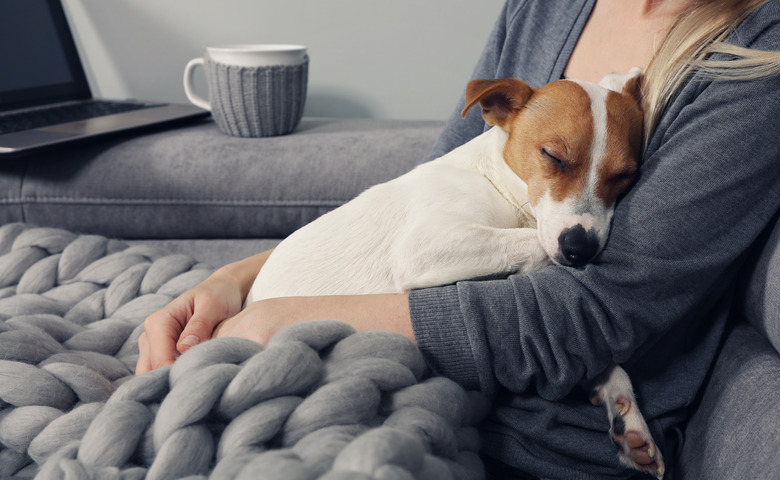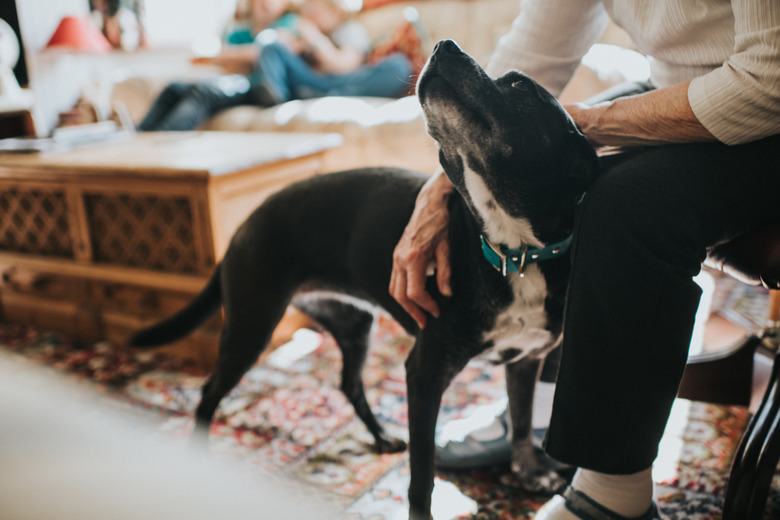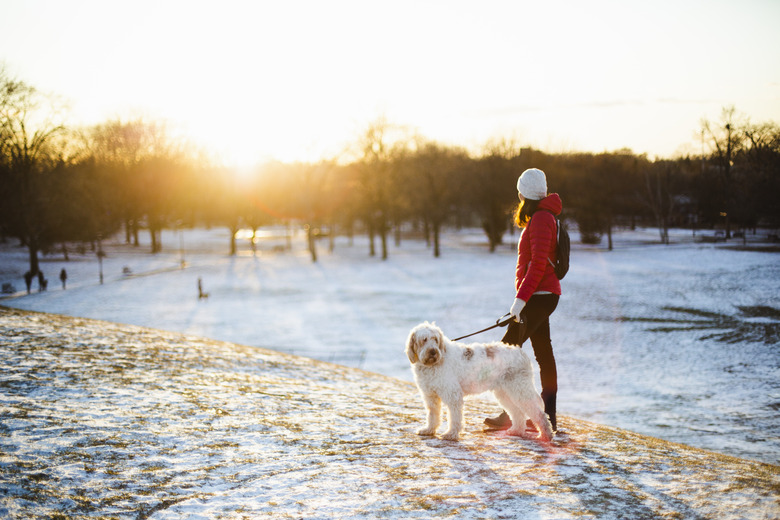Caring For Older Dogs In The Winter
Wintertime can be rough on senior pets. It's cold, there is snow and ice on the ground, and all your older dog may want to do is stay inside and sit next to the heater. However, it's important to ensure that your senior dog is receiving just as much care and attention in the winter months as they do during warmer times of the year.
By following tips for caring for older dogs in the winter, you can keep them healthy and happy all season long. Here's what to do when cold weather strikes.
Make sure your senior dog is warm
Make sure your senior dog is
warm
When it comes to older dogs and body temperature, senior dogs are more susceptible to cold weather and frostbite, so it's critical that they stay warm. Don't cut your dog's coat in the winter; instead, let it grow out. Put a sweater on your dog if they don't have a long coat to protect them, or if they're a small breed. If you can, get booties for paw pads. If your dog refuses to wear them, then make sure you avoid chemical deicer, which can damage your senior dog's paws — and cause them a lot of pain. When your dog is inside the house, make sure the heat is on so that they're comfortable.
Be mindful of joint support for your senior dog
Be mindful of joint support for your senior dog
The wintertime, which results in a drop in barometric pressure, can lead to your dog's arthritis flaring up. Your dog may experience aches and pains, swelling, and stiffness around their joints. There are a few ways to address this.
First, make sure they have a comfy and cozy dog bed and, perhaps, memory foam material on the inside. An orthopedic bed will support your senior dog's joints, especially their hips and elbows, making it easier for them to function throughout the day.
You can also ask your veterinarian about adding different supplements, like chondroitin sulfate and glucosamine, into your dog's diet to support their joint health. Don't incorporate any supplements until you get approval from your veterinarian, though.
Ensure your senior dog has a healthy diet
Ensure your senior dog has a
healthy diet
To maintain your dog's health during their golden years, you should make sure that they have a healthy diet. This is especially crucial during the winter months. Buying high-quality dog food is important, but you should also be mindful of the number of calories your senior dog is eating per day. Senior dogs need fewer calories than younger dogs since they aren't burning as much energy. You can purchase lower-calorie food for them after you consult with your dog's veterinarian.
Keep up with your senior dog's exercise in the winter
Keep up with your senior dog's exercise in the winter
Aging dogs and weight gain is a real problem for them. If your dog is obese, it can put them at risk of experiencing more health issues. Even in the winter, make sure your senior dog is still active.
Exercise can help with pain from arthritis as well as keep health issues at bay during their senior years. If it's too cold to go outside for a long walk, then you can go outside for shorter periods of time so that your dog gets some activity and potty time in. In between walks, you can play with them indoors. Toss their favorite ball or toy around throughout the day. This will ensure your senior dog is staying active. It'll also improve their mood and give them the mental stimulation they need.
The bottom line
The bottom line
Older dogs require a little bit more tender loving care during the winter. You can keep your dog warm by letting their coat grow out, and providing a sweater and booties. Be mindful of their joint support and canine arthritis by making sure they have a cozy bed. You can also consult your dog's veterinarian regarding supplements to help their joints. Ensure your dog has a healthy diet and stays active. By following these tips, you can help make sure your dog enjoys the colder weather — just as much as the warmer months.


